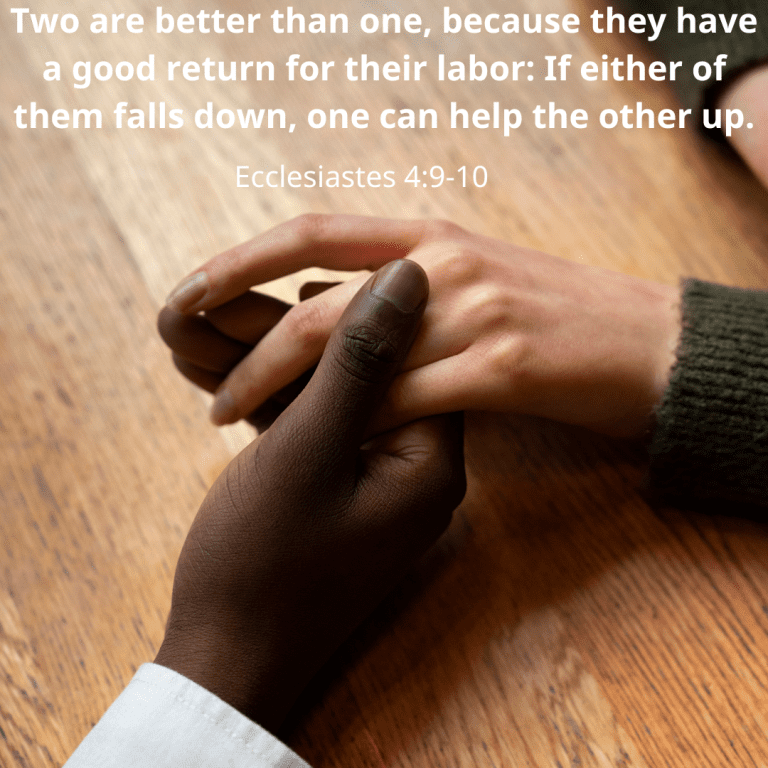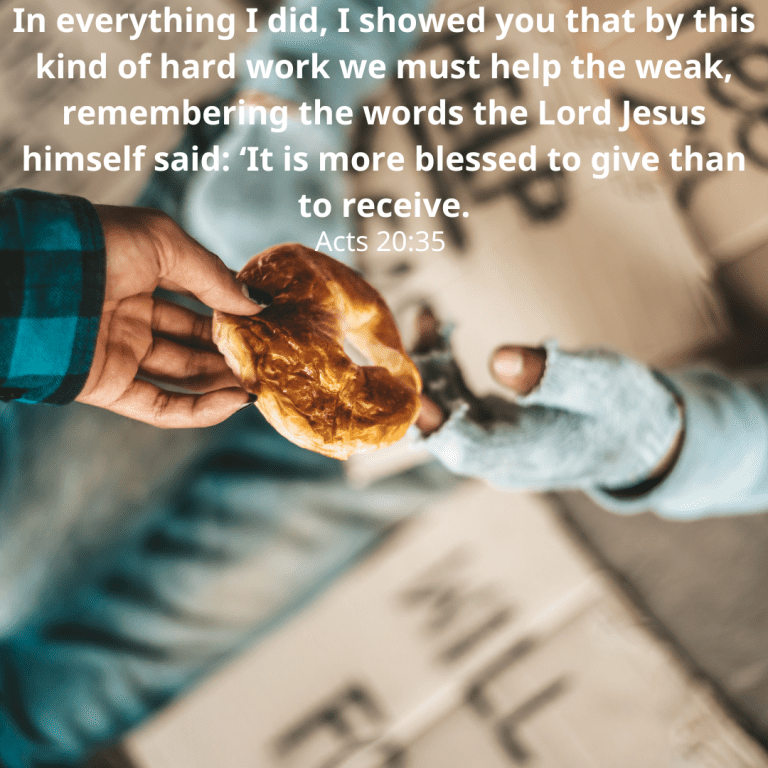The Parable of the Sower
(Mark 4.1-9Luke 8.4-8)1 That same day Jesus left the house and went to the lakeside, where he sat down to teach. 2 The crowd that gathered around him was so large that he got into a boat and sat in it, while the crowd stood on the shore. 3 He used parables to tell them many things.
“Once there was a man who went out to sow grain. 4 As he scattered the seed in the field, some of it fell along the path, and the birds came and ate it up. 5 Some of it fell on rocky ground, where there was little soil. The seeds soon sprouted, because the soil wasn't deep. 6 But when the sun came up, it burned the young plants; and because the roots had not grown deep enough, the plants soon dried up. 7 Some of the seed fell among thorn bushes, which grew up and choked the plants. 8 But some seeds fell in good soil, and the plants bore grain: some had one hundred grains, others sixty, and others thirty.”
9 And Jesus concluded, “Listen, then, if you have ears!”
The Purpose of the Parables
(Mark 4.10-12Luke 8.9Luke 10)10 Then the disciples came to Jesus and asked him, “Why do you use parables when you talk to the people?”
11 Jesus answered, “The knowledge about the secrets of the Kingdom of heaven has been given to you, but not to them. 12 For the person who has something will be given more, so that he will have more than enough; but the person who has nothing will have taken away from him even the little he has. 13 The reason I use parables in talking to them is that they look, but do not see, and they listen, but do not hear or understand. 14 So the prophecy of Isaiah applies to them:
‘This people will listen and listen, but not understand;
they will look and look, but not see,
15 because their minds are dull,
and they have stopped up their ears
and have closed their eyes.
Otherwise, their eyes would see,
their ears would hear,
their minds would understand,
and they would turn to me, says God,
and I would heal them.’
16 “As for you, how fortunate you are! Your eyes see and your ears hear. 17 I assure you that many prophets and many of God's people wanted very much to see what you see, but they could not, and to hear what you hear, but they did not.
Jesus Explains the Parable of the Sower
(Mark 4.13-20Luke 8.11-15)18 “Listen, then, and learn what the parable of the sower means. 19 Those who hear the message about the Kingdom but do not understand it are like the seeds that fell along the path. The Evil One comes and snatches away what was sown in them. 20 The seeds that fell on rocky ground stand for those who receive the message gladly as soon as they hear it. 21 But it does not sink deep into them, and they don't last long. So when trouble or persecution comes because of the message, they give up at once. 22 The seeds that fell among thorn bushes stand for those who hear the message; but the worries about this life and the love for riches choke the message, and they don't bear fruit. 23 And the seeds sown in the good soil stand for those who hear the message and understand it: they bear fruit, some as much as one hundred, others sixty, and others thirty.”
The Parable of the Weeds
24 Jesus told them another parable: “The Kingdom of heaven is like this. A man sowed good seed in his field. 25 One night, when everyone was asleep, an enemy came and sowed weeds among the wheat and went away. 26 When the plants grew and the heads of grain began to form, then the weeds showed up. 27 The man's servants came to him and said, ‘Sir, it was good seed you sowed in your field; where did the weeds come from?’ 28 ‘It was some enemy who did this,’ he answered. ‘Do you want us to go and pull up the weeds?’ they asked him. 29 ‘No,’ he answered, ‘because as you gather the weeds you might pull up some of the wheat along with them. 30 Let the wheat and the weeds both grow together until harvest. Then I will tell the harvest workers to pull up the weeds first, tie them in bundles and burn them, and then to gather in the wheat and put it in my barn.’”
The Parable of the Mustard Seed
(Mark 4.30-32Luke 13.18Luke 19)31 Jesus told them another parable: “The Kingdom of heaven is like this. A man takes a mustard seed and sows it in his field. 32 It is the smallest of all seeds, but when it grows up, it is the biggest of all plants. It becomes a tree, so that birds come and make their nests in its branches.”
The Parable of the Yeast
(Luke 13.20Luke 21)33 Jesus told them still another parable: “The Kingdom of heaven is like this. A woman takes some yeast and mixes it with a bushel of flour until the whole batch of dough rises.”
Jesus' Use of Parables
(Mark 4.33Mark 34)34 Jesus used parables to tell all these things to the crowds; he would not say a thing to them without using a parable. 35 He did this to make come true what the prophet had said,
“I will use parables when I speak to them;
I will tell them things unknown since the creation of the world.”
Jesus Explains the Parable of the Weeds
36 When Jesus had left the crowd and gone indoors, his disciples came to him and said, “Tell us what the parable about the weeds in the field means.”
37 Jesus answered, “The man who sowed the good seed is the Son of Man; 38 the field is the world; the good seed is the people who belong to the Kingdom; the weeds are the people who belong to the Evil One; 39 and the enemy who sowed the weeds is the Devil. The harvest is the end of the age, and the harvest workers are angels. 40 Just as the weeds are gathered up and burned in the fire, so the same thing will happen at the end of the age: 41 the Son of Man will send out his angels to gather up out of his Kingdom all those who cause people to sin and all others who do evil things, 42 and they will throw them into the fiery furnace, where they will cry and gnash their teeth. 43 Then God's people will shine like the sun in their Father's Kingdom. Listen, then, if you have ears!
The Parable of the Hidden Treasure
44 “The Kingdom of heaven is like this. A man happens to find a treasure hidden in a field. He covers it up again, and is so happy that he goes and sells everything he has, and then goes back and buys that field.
The Parable of the Pearl
45 “Also, the Kingdom of heaven is like this. A man is looking for fine pearls, 46 and when he finds one that is unusually fine, he goes and sells everything he has, and buys that pearl.
The Parable of the Net
47 “Also, the Kingdom of heaven is like this. Some fishermen throw their net out in the lake and catch all kinds of fish. 48 When the net is full, they pull it to shore and sit down to divide the fish: the good ones go into the buckets, the worthless ones are thrown away. 49 It will be like this at the end of the age: the angels will go out and gather up the evil people from among the good 50 and will throw them into the fiery furnace, where they will cry and gnash their teeth.
New Truths and Old
51 “Do you understand these things?” Jesus asked them.
“Yes,” they answered.
52 So he replied, “This means, then, that every teacher of the Law who becomes a disciple in the Kingdom of heaven is like a homeowner who takes new and old things out of his storage room.”
Jesus Is Rejected at Nazareth
(Mark 6.1-6Luke 4.16-30)53 When Jesus finished telling these parables, he left that place 54 and went back to his hometown. He taught in the synagogue, and those who heard him were amazed. “Where did he get such wisdom?” they asked. “And what about his miracles? 55 Isn't he the carpenter's son? Isn't Mary his mother, and aren't James, Joseph, Simon, and Judas his brothers? 56 Aren't all his sisters living here? Where did he get all this?” 57 And so they rejected him.
Jesus said to them, “A prophet is respected everywhere except in his hometown and by his own family.” 58 Because they did not have faith, he did not perform many miracles there.
Ŋen ŋəwujənu ŋed̶a igi gabəd̶a ŋwored̶a
(Margus 4:1-9Luka 8:4-8)1 Na loman lakəl Yesu nəŋəməñe eɽa nəŋəɽaŋe alo d̶əbarlda nano d̶oɽra ṯa aŋërrəŋaici led̶a ŋen. 2 Na led̶a lwaiña larraid̶o ŋu nano, nṯia gënəŋu nəŋënṯi id̶əpundr d̶eŋau nəŋəɽaŋe alo. Na led̶a pred̶ ṯaləṯuru nëṯəndia. 3 Na gënəŋu nəŋələɽwatiṯi ŋen ŋwaiña ŋenŋa iŋi ŋəwujənu, nəŋaṯa, “Ed̶a gənəŋ gabəɽo ŋen ŋanṯa aŋabəd̶e ŋwored̶a. 4 Na ndə gabəd̶əlo ŋəmaṯan nəŋəreinialo ed̶ad̶, na ndəfia nela nəloṯe. 5 Ŋwored̶a ŋəmaṯan nəŋəreinialo eŋwandra d̶ud̶a d̶ətëfr, nəŋobəd̶e taltal ŋen ŋanṯa d̶ud̶a d̶ətëfr. 6 Orn ndə ëd̶əñina yetwod̶o ibwa niluɽi nəŋəmud̶iṯi aŋəno ŋen ŋanṯa urldia gero gəfid̶ia alo yoliano. 7 Ŋwored̶a ŋəmaṯan nəŋəreinialo iri, orn ri ndrətwod̶e ndrləkëndi. 8 Ŋəmaṯan nəŋəreinialo id̶ud̶a d̶əŋəra, nəŋobəd̶e nəŋələŋe ləd̶ia lwaiña. Ŋəmaṯan ŋaləŋo ləd̶ia ered̶ia red̶ na ŋəmaṯan ŋaləŋo ləd̶ia ered̶ia d̶enəŋ nalo ered̶ia gonto, na ŋəmaṯan ŋaləŋo ləd̶ia ered̶ia giɽijin. 9 Ŋgiṯr ed̶a igi gerṯo nënəñia aŋəne ŋen iŋi!”
Ŋen ŋəŋen ŋəwujənu
(Margus 4:10-12Luka 8:9-10)10 Orn ṯaləmis ilëɽəŋu niyela nemeɽəd̶e ṯa, “Ŋen ŋanṯau agəlwaɽəṯu led̶a ŋen ŋəwujənu?” 11 Na gënəŋu nəŋəluɽəbiṯi eŋen nəŋaṯa, “Ŋen ŋaneinənde ṯa ñaləŋeṯe ŋaməɽa ŋəŋələŋe ŋelo, orn ŋero ŋəlneinia. 12 Ŋen ŋanṯa ed̶a gerṯo laŋge gid̶i aŋəlneini ləmən təŋ, na gid̶i aŋəlerṯe lwaiña, orn ed̶a gero laŋge, waŋge gətëfr gəlëɽəŋu gid̶i aŋəmeini. 13 Ŋen ŋafəṯia igalwaɽəṯia ŋen ŋəwujənu ŋen ŋanṯa aləseici, orn lderṯe ləseicia, na ṯa alne, orn lderṯe lənna walla lələŋeṯa. 14 Ŋen iŋi Isaiya gəlwaɽo aŋəɽiñad̶eini iŋulu, iŋi ŋaṯa,
‘Đeṯəm ñagid̶i ñane, orn ñagaber ñagid̶i ñaləŋeṯe,
na d̶eṯəm ñagid̶i ñaseid̶i, orn ñagaber ñagid̶i ñaseid̶i.
15 Ŋen ŋanṯa ŋəṯəɽa ŋəled̶a ildi ŋaɽo təgətəg, na laɽo ndul,
na laldanḏeinu isi ṯa alerṯe ləseid̶ia isiya esen,
na alerṯe lənna nënəñiana enen, na ṯa alerṯe lələŋeṯa eŋəṯəɽa eŋen na ṯa alerṯe ləŋgiṯia ŋen eŋen ŋeicia, ṯa iləyeid̶i’.”
16 Yesu nəŋəlwaɽəṯi ṯaləmis məldin ṯa, “Ñagaŋəra nano ŋen ŋanṯa, isi esalo yaseid̶ia, na nënəñia enalo naŋəra nano ŋen ŋanṯa nanna. 17 Đeṯəm igandəlwaɽəṯia ṯa, anəbiya ywaiña na led̶a lwaiña ildi ləd̶urwaṯo eŋen lafo lwonaṯa ləseicia ŋen iŋi ñagəseicia, orn lero ləseicia, na lafo lwonaṯa lənna ŋen iŋi ñagənna, orn lero lənna.
Ŋen Yesu gërrəŋaicu led̶a ŋen ŋəwujənu ŋed̶a igi gabəd̶a ŋwored̶a
(Margus 4:13-20Luka 8:11-15)18 “Nṯia ñaŋ, nər ŋen ŋəwujənu ŋed̶a igi gabəd̶o ŋwored̶a. 19 Ndə ed̶a gənəŋ gəno ŋen ŋəŋələŋe ŋə-Rəmwa orn nəŋerṯe gələŋeṯa, Seṯan niyela nemamaṯe ŋen ŋabəd̶ənu egare gəlëɽəŋu. Gënəŋu garno ŋwored̶a iŋi ŋəreinu alo ed̶ad̶. 20 Ŋwored̶a iŋi ŋəreinu alo eŋwandr, ŋarno ed̶a igi gəno ŋen nəŋëndi taltal d̶əŋərad̶a nano. 21 Orn gënəŋu gero urldia, nəŋëndi ŋen liga lobəlano, na ndə ŋen ŋətwod̶o ŋabɽwaŋəno walla gəneinu ŋen ŋubwa ŋen ŋanṯa ŋen ŋə-Rəmwa, gënəŋu nəŋgiṯi ŋen taltal. 22 Ŋwored̶a iŋi ŋəreinu alo iri ŋarno ed̶a igi gəno ŋen ŋə-Rəmwa, orn d̶əgərd̶ia d̶alo isi na d̶wonaṯa d̶əlaŋge lwaiña ldëndi ŋen, na ŋen nəŋerṯe ŋələŋa ləd̶ia. 23 Ŋwored̶a iŋi ŋəreinu id̶ud̶a d̶əŋəra, ŋarno ed̶a igi gəno ŋen ŋə-Rəmwa na nəŋələŋeṯe, fəŋu igi gəmama ləd̶ia lwaiña eŋen ŋə-Rəmwa. Ed̶a gənəŋ gamama led̶a ered̶ia red̶, na ed̶a gənəŋ gamama led̶a ered̶ia d̶enəŋ nalo ered̶ia gonto, na ed̶a gənəŋ gamama led̶a ered̶ia giɽijin.”
Ŋen ŋəwujənu ŋəṯoɽwar
24 Yesu nəŋəlwaɽəṯi ŋen ŋwomən ŋəwujənu nəŋaṯa, “Ŋen ŋəŋələŋe ŋelo ŋarno maje gənəŋ igii gəwad̶o ŋwana ŋəŋəra igii gəlëɽəŋu. 25 Orn iliga uləŋgi led̶a ləndro, ed̶a gənəŋ gəgeiyema nəŋela nəŋəwad̶e ṯoɽwar eŋwana igii nəgabəla. 26 Ndə ŋwana ŋobəd̶o nəŋwonḏaice, na ṯoɽwar nḏobəd̶e com. 27 Na ləbai ləmaje ldela ldəmalwaɽəṯi ṯa, ‘Ya eləŋ gerṯe agawad̶o ŋwana ŋəŋəra igii gəlaɽəŋa orn ṯoɽwar d̶eṯo ŋga?’ 28 Maje nəŋəleiṯi ṯa, ‘Ed̶a gənəŋ igi gəgeiyeiñe fəŋu gid̶u ŋen iŋi’. Ləbai ldəmeɽəd̶e ldaṯa, ‘Agwonaṯa ñagəbəla ñaləcəd̶aṯe alo?’ 29 Orn maje nəŋaṯa, ‘Ndo, ŋen ŋanṯa aŋgaica ñagid̶i ñaləcəd̶aṯe alo ŋwanaŋa. 30 Orn ŋgiṯərldo altwod̶e ndəm. Na iliga ləd̶wanḏa igid̶i ilwaɽəṯi led̶a ildi lwanḏa ṯa, mbər ñaicəd̶aṯe ṯoɽwar alo ananoŋ ñakase ñakëɽi isia, orn ñwanḏe ŋwana ñalakëɽici ed̶warra d̶əlëɽəñi’.”
Ŋen ŋəwujənu ŋəŋolwa ŋalkarḏal
(Margus 4:30-32Luka 13:18-19)31 Yesu nəŋəlwaɽəṯi ŋen ŋwomən ŋəwujənu nəŋaṯa, “Ŋələŋe ŋelo ŋarno ŋolwa ŋəkarḏal iŋi ŋərresi kaiñ ŋəməñaṯo lorəba pred̶, iŋi maje gənəŋ gakad̶o ejənena. 32 Orn ŋolwa iŋi nəŋobəd̶e nəŋəɽeṯe uɽi goɽra kaiñ, na ndəfia nelo nela nəɽaŋe ndreṯia rəlëɽəŋu.”
Ŋen ŋəwujənu ŋud̶əɽi
(Luka 13:20-21)33 Yesu nəŋəlwaɽəṯi ŋen ŋwomən ŋəwujənu nəŋaṯa, “Ŋələŋe ŋelo ŋarno ud̶əɽi igi wuji gəmo nəŋënəci egaicəba garno igəsafiya iɽijin, ṯa aŋəmiñi aicəbano pred̶.”
Ŋen Yesu gəɽwato ŋen ŋəwujənu
(Margus 4:33-34)34 Yesu gaɽwatiṯu led̶a ŋen iŋi pred̶ ŋenŋa ŋəwujənu, na gero gələɽwatiṯia ŋen ŋənəŋ, illi ŋenŋa ŋəwujənu, 35 Gid̶u ṯia ṯa ŋen aŋəɽiñəd̶eini iŋi Isaiya gəlwaɽo ndə gaṯa, “Igid̶i eɽwate ŋen ŋəwujənu, na igid̶i elwaɽe ŋen pəlelo iŋi ŋələbijənu liga alo yid̶ənu na d̶əñid̶i məldin.”
Đërrəŋaid̶ia d̶əŋen ŋəwujənu ŋəṯoɽwar
36 Ndə Yesu gəŋgaṯo eled̶a nəŋënṯi egeɽa. Na ṯaləmis nemeṯa nano nemeɽəd̶e niyaṯa, “Aŋaicənde ŋen iŋi ŋəwujənu ŋəṯoɽwar id̶i d̶əfo igii.” 37 Gënəŋu nəŋəluɽəbiṯi eŋen nəŋaṯa, “Ed̶a gəwad̶o ŋwana ŋəŋəra, fəŋu Id̶ia gə-Led̶a. 38 Gii gaɽo alo, na ŋwana igi ŋəŋəra ŋaɽo ləd̶ia ləŋələŋe ŋə-Rəmwa, ṯoɽwar d̶aɽo ləd̶ia lə-Seṯan na ed̶a igi gəɽo egeiya gəwad̶o ṯoɽwar fəŋu Seṯan, 39 na d̶wanḏa d̶afia ndə liga ləməndad̶o, na fəmalaiyəka isi ywanḏa. 40 Ŋen ŋarno ṯoɽwar d̶aicəd̶einialo nḏuɽəni, nṯia com ŋen ŋid̶i aŋəfeṯe ndə liga ildi ləməndëd̶ənu. 41 Id̶ia gə-Led̶a gid̶i aŋəd̶waṯe malaiyəka ilëɽəŋu eŋələŋe ŋəlëɽəŋu, na yënəŋulu yid̶i aiyərarreid̶i led̶a pred̶ ildi lërruwəṯu led̶a eŋen ŋeicia, na led̶a pred̶ ildi lid̶u ŋen ŋeicia, 42 na yid̶i aiyəlërruwəṯi isia, ŋwal na d̶əsaṯa eŋad̶ lid̶i aləfeṯe alo yakəl. 43 Nṯia led̶a ləd̶urwaṯo eŋen lid̶i aləwad̶ialo larno ëd̶əñina eŋələŋe ŋ-Eṯen. Ŋgiṯr led̶a ildi lerṯo nënəñia alne ŋen iŋi.
Ŋen ŋəwujənu ŋəlaŋge lwaiña iliano, na ŋəlulu na ŋəyar
44 “Ŋen ŋəŋələŋe ŋelo ŋarno laŋge lələbijənu igii lwaiña iliano kaiñ ildi maje gənəŋ gəfid̶əlo nəŋələbəce. Gënəŋu nəŋəreṯe nano nəŋəɽe nəŋəṯwe laŋge əllëɽəŋu, na nəŋilid̶i gii gakəl.
45 “Na com, ŋen ŋəŋələŋe ŋelo ŋarno ed̶a gənəŋ igi gəbapwaiña ŋwandra ŋəbërnia lulu iŋi ŋwaiña iliano. 46 Orn ndə gəfid̶u lulu lonto lwaiña iliano kaiñ, gënəŋu nəŋəṯwe laŋge pred̶ əllëɽəŋu nəŋilid̶i lulu.
47 “Na com, ŋen ŋəŋələŋe ŋelo ŋarno yar isi yəwujənu ed̶əbarlda d̶oɽra niyëndi ləmme lwaiña ɽetəɽeteo.Yar yeləmme na d̶əpundria d̶eŋau 48 Ndə yar ywunḏeinu, led̶a ldəbəled̶eṯe nëṯəndi ldəɽaŋe alo ldərarreid̶i ləmme ləŋəra eŋuməra, orn ldəlërruwəṯi ildi leicia. 49 Ŋen ŋid̶i aŋəfeṯe ṯia ndə liga ildi ləməndëd̶ənu. Malaiyəka yid̶i aiyela aiyəɽandəd̶e led̶a ano leicia eled̶a ləd̶urwaṯo eŋen, 50 na yid̶i aiyërruwəṯi led̶a leicia isia. Đara na d̶əsaṯa eŋad̶ lid̶i aləfeṯe tu.”
Ŋen ŋəlaŋge ləmaijən na laŋge ləram
51 Yesu nəŋeɽəd̶e ṯaləmis nəŋaṯa, “Ñagaləŋeṯo ŋen iŋi pred̶?” Yënəŋulu nimeiṯi ṯa, “A.” 52 Na gënəŋu nəŋəleiṯi ṯa, “Led̶a pred̶ ildi ləbërrəŋaid̶ia ŋen ŋ-Alganun ildi lërrəŋeinu ŋen ŋəŋələŋe ŋelo larno ed̶a gerṯo eɽa igi gəmama laŋge egworəb ləmaijən na ləram elaŋge ildi lëɽənu aləsoŋ.”
Ŋen Yesu gənid̶ənu alo yi-Nasəraṯ
(Margus 6:1-6Luka 4:16-30)53 Na ndə Yesu gəɽwato ŋen iŋi pred̶ ŋəwujənu d̶əge, nəŋəməñe alo yakəl. 54 Na gënəŋu nəŋeṯa təŋgen nəŋërrəŋaici led̶a ŋen emajma. Na led̶a ldirəwano kaiñ ldaṯa, “Gënəŋu garno d̶ələŋeṯa ŋen nəsi na aŋwara isi ŋga? 55 Gerṯe fəŋu id̶ia ged̶a igi geicəd̶a? Gerṯe ləŋgen gəbërnia Mariam, na lorlden lərrwa ləbërnia Yagub, na Yusif, na Siman, na Yaud̶a? 56 Na gerṯe lorəba əllëɽəŋu pred̶ əɽəlda ñagəfəlda? Nṯia garno ŋga ŋen iŋi pred̶.” 57 Na ldəmaned̶e. Orn Yesu nəŋəleiṯi ṯa, “Nabi gənaneinia d̶amia alo pred̶ illi təŋgen, na egeɽa gəlëɽəŋu.” 58 Na gënəŋu gero gəbəd̶ia aŋwara ywaiña alo yakəl, ŋen ŋanṯa led̶a lero ləberṯia d̶wonaṯa.




